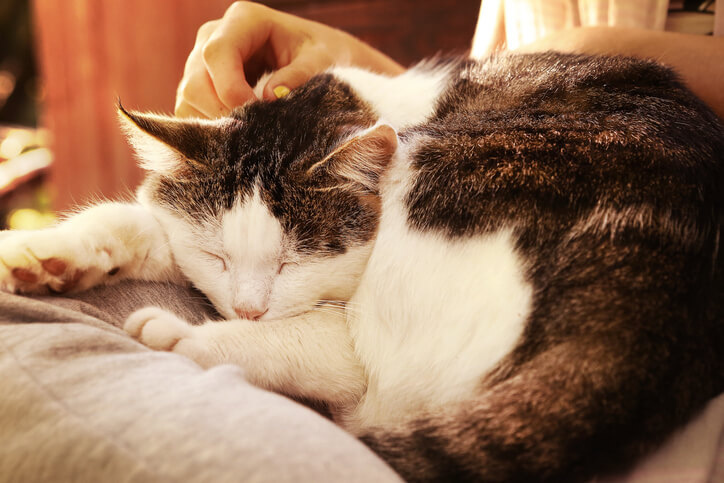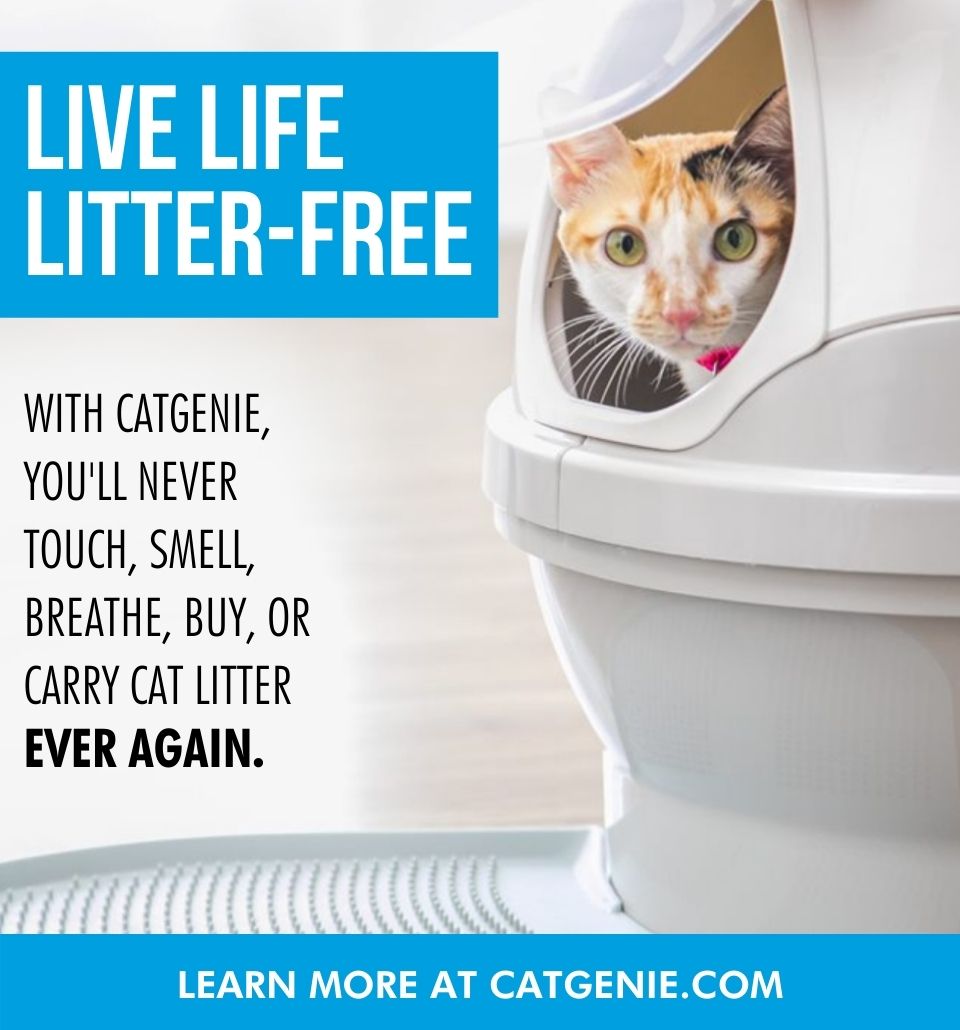My cat’s general constitution with regard to his health falls into the ‘if it ain’t broke, don’t fix it’ area of life. As long as everything is status quo (eating, playing and knocking over as much as possible), he would love me to put off our annual trip to the vet, which is an experience equal to Dante’s trip through the fiery gates of hell (for all of us). The unearthing of the dreaded carrier, the struggle to remove every claw from my jugular, the proceeding howls to let me know just how he will exact his revenge. True misery for all. However as my cat ages I realize the increased importance of getting him in to see the vet regularly.
SIGNS OF AGING IN CATS
Due to domestication, advances in veterinary medicine and improved nutrition, cats are living longer. The Cornell Feline Health Center considers an older cat to be around twelve to fourteen years old. Around this time, your feline family may start to show signs of aging, such as loss of hearing, or change of coat color. Other big indicators include changes in eating habits, issues with moving, jumping and making it to the litter box.
Fear-based aggression can also increase in older cats. As Angus enters his teens (a spritely young seventy in cat years), he rebels more often. He’s generally sullen (unless left alone), more vocal when he doesn’t get his way and he’s extremely rude to guests. The hissing, swiping side of his personality used to be an anomaly, but as my cat ages, his fear of new circumstances and people causes him to react. In these instances where senior cats tend to act out, one cure-all is ensuring that they can retreat to a safe space where they will be left alone until they acclimate to strangers on their own terms.
HELP A KITTY OUT, WHY DON’T YOU?
A measly screen door is all that separates my lil’ wildcat from decimating our neighborhood birds and bestowing me with their remaining limbs. Though I feel guilty for not allowing my cat outdoors, I would like to think that I’ve extended his life. All too often friends’ outdoor cats are either hit by cars or have (gulp) unfortunate run-ins with hungry coyotes. Indoor cats avoid those deadly pitfalls, living sometimes into their twenties. Just as we slow down, so do they. If they have trouble moving around, make sure that they have ample food and water throughout the house. If grandma has a hard time climbing those stairs, you better bet your elder cat does as well. Access to the litter box is also a common issue as cats age. Make sure that it is accessible without your cat having to go through hoops to get to it.
Remember how your little brother annoyed the bejeesus out of you when you were a too-cool-for-school teen? Well, it’s not much different when you have that moment of weakness at the pet shelter and you introduce a MUCH YOUNGER kitten into your elderly cat’s life. Just as they’re settling down for a nap, who comes along to play but the energetic interloper you brought home on a whim. Some words of advice: Volunteer and play with the kitten. Help it find a loving home. But be thoughtful when it comes to introducing new family members into your elderly cat’s life. It can cause more stress than necessary for you and your animals.
MAINTAINING GOOD SENIOR CAT HEALTH
I hope to strike a happy balance between our collective sanity and everyone’s general health. I cling to the mantra ‘maintain’ as we all get older. Sometimes that means taking supplements, sometimes an extra thirty minutes at the gym and other times it means a hellish, but very necessary trip to the vet.






